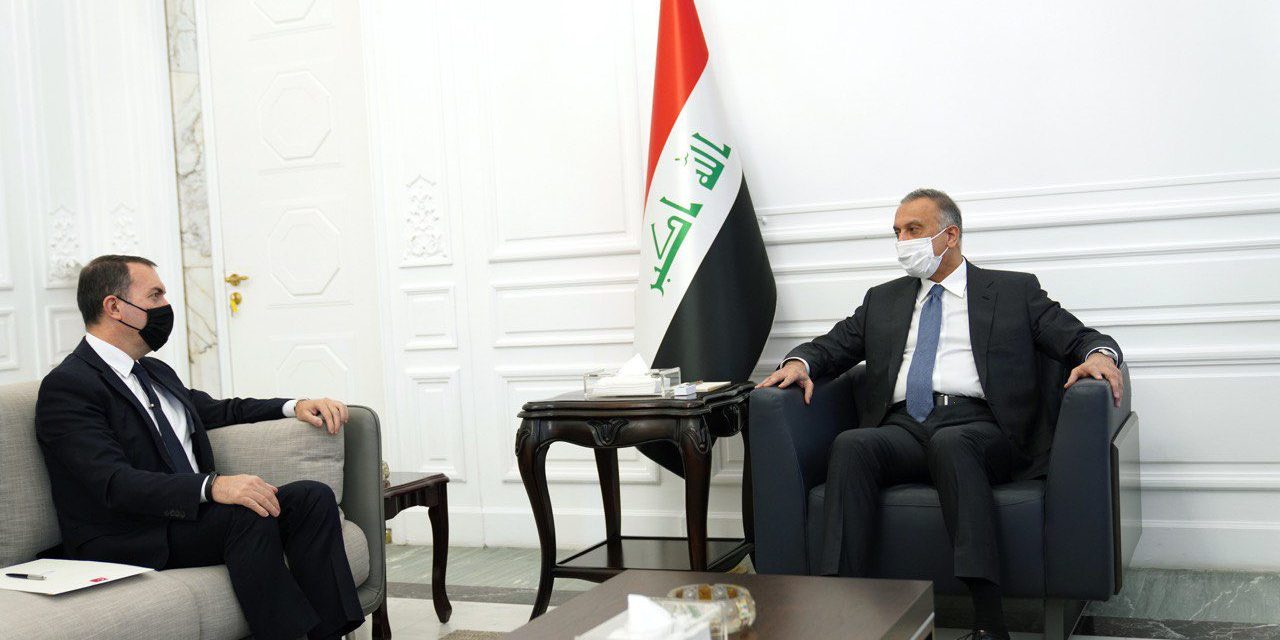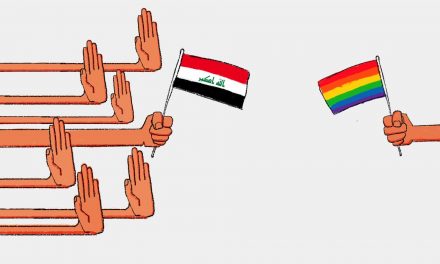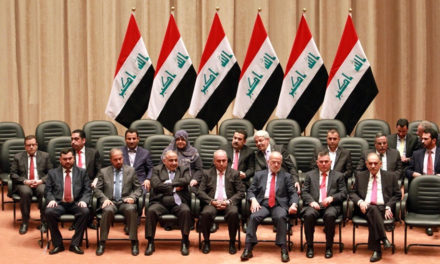On October 15, 2020, Turkish President Recep Tayyip Erdoğan invited Iraqi Prime Minister Mustafa al-Kadhimi to visit Turkey. While no date has been set, Kadhimi seems inclined to go. This would be a mistake.
Iraqi officials, from across the political spectrum, tell almost any visitor that Iraq’s future and security depend on Baghdad’s neutrality and ability to cultivate good relations with all neighbors, be they Arab, Persian or Turkish. In effect, hoping Iraq can stand outside regional conflicts and become a second Oman.
That is a noble idea but, so long as Iraq’s neighbors intervene inside the country, it is wishful thinking. Iraqis might lament that various parties in Tehran and Washington have turned their country into a battlefield to play out rivalries that at their core have little to do with Iraq, but simply professing neutrality will not rid the country of either Iranian-backed militias or American operations targeting them and their sponsors. As for the Oman analogy, neutrality became possible only after the defeat of foreign-backed forces on Omani soil.
Kadhimi’s team is correct that it is traditional for every prime minister to visit Iran, the United States, Europe, Jordan and Turkey. After Iraq’s rapprochement with Saudi Arabia during Prime Minister Haider al-Abadi’s tenure, that country also joined the list. Six months into office, Kadhimi has already checked off every country on the list but Turkey.
To add Turkey now, however, would be a mistake. Kadhimi became prime minister as a transitional leader to manage Iraq as it prepared for elections under a new electoral law. That alone is the primary basis for his legitimacy. Of course, he cannot ignore other crises Iraq must weather as it moves toward the polls. Kadhimi took Iraq’s helm at a time when the country faced dual economic crises brought on by COVID-19 and the precipitous decline in the price of oil.
Iraqis often defy the predictions of outsiders, but patience is running thin. Finance Minister Ali Allawi has put together a White Paper outlining necessary reforms but it is not clear that parliament has the foresight or will to recognize that the reforms included are a necessity rather than an à la carte menu from which to pick and choose. With Iraq’s economy moribund, many Iraqis fail to understand why Kadhimi should travel and question whether his frequent trips bring them any gains. Naysayers increasingly insist they do not and instead suggest Kadhimi travels to collect backing, which he cannot achieve domestically, but needs for political survival. Such sentiments may not be fair. Whether its lines of credit, commerce opportunities, or security backing, Kadhimi’s trips abroad have been fruitful. A Turkey trip would be different.
Since the defeat of Da’ish, an event in which Kadhimi played an outsized albeit quiet role, Iraqis have embraced a post-sectarian moment. More than 40 percent of Iraqis were born after Saddam’s ouster and have little patience for sectarian parties or the damage which they have wrought. Some states—Saudi Arabia and Jordan, for example, which once embraced sectarian policies toward Iraq’s post-2003 political order—now engage with the diversity of Iraqi society and recognize that sectarian wars in Iraq are in no country’s interest. Neither Iran nor Turkey, however, have come to such an understanding; their sectarian agendas continue to threaten Iraq’s stability and security.
The problem with a Turkey trip is greater, however. The narrative that Da’ish arose organically in reaction to former premier Nouri al-Maliki’s sectarianism is false. Today, the evidence is overwhelming that Turkey has been that group’s chief enabler, and that the group would not have been able to run roughshod over northern Iraq without some Turkish connivance, especially with regard to the transit of foreign fighters across its border.
This problem is not simply in the past. Turkey not only occupies Iraqi territory but it also makes revanchist claims to portions of northern Iraq. Combined with the reality of Turkey’s 46-year occupation of northern Cyprus, this should raise concerns in Baghdad that Ankara’s ambitions in Iraq are not limited to counterterrorism.
There have been other affronts to Iraqi sovereignty. Yezidi activists involved in reuniting families separated by Da’ish say they have proof that Yezidi girls from Iraq remain enslaved in both Turkish-controlled zones in Syria and in Turkey itself. On August 11, 2020, a Turkish drone strike killed an Iraqi general on duty inside Iraq. Erdoğan neither apologized nor paid compensation. To travel to Turkey under such circumstances would essentially reward Erdoğan for his aggression. Should Kadhimi state that he will not visit Turkey while Turkish troops occupy Iraqi territory and while the August incident remains unresolved, he might appear less a supplicant and instead leverage his defense of Iraq’s growing nationalist sentiment into a broader precedent, which he can then wield when confronting other external challenges to Iraqi sovereignty, be they from Iran or the United States.
Certainly, there are diplomatic reasons to engage Turkey. Arbitration regarding Turkey’s separate oil deals with Iraqi Kurdistan and violations of Iraq-Turkey pipeline agreements dating back to 1973 are coming to a head. The expectation that Iraq will win a multibillion-dollar judgment provides Baghdad leverage in bilateral negotiations on a number of fronts. Such talks, however, should be the domain of Iraq’s legal team and its senior diplomats. For Kadhimi to travel to Ankara when Iraq holds the legal upper hand, however, and absent a final agreement from Erdoğan is akin, in a poker game, to folding with a full house against an opponent who holds only a pair of twos.
Kadhimi need not insult Erdoğan by refusing any meeting. But rather than leaving Baghdad yet again, Kadhimi should first insist Erdoğan visit him in Iraq. Baghdad would be logical, although it might be interesting to call a Najaf summit to force Erdoğan to confront Iraq’s diversity and the fact that any pretense to leadership in the Islamic world which ignores Shi’ism and Islam’s diversity will end in failure. Erdoğan frankly would refuse any such meeting in Iraq because it would flip the cards and symbolize his own weakness. That Erdoğan would make such consideration, however, only highlights that Kadhimi cannot avoid such symbolism even if he has little patience for it. Given Turkey’s assaults on Iraq, the best move now would be to avoid any summit but, should Kadhimi deem it necessary, then it is time to pick a third country in which to meet.

Michael Rubin
Michael Rubin is a resident scholar at the American Enterprise Institute in Washington, D.C.










